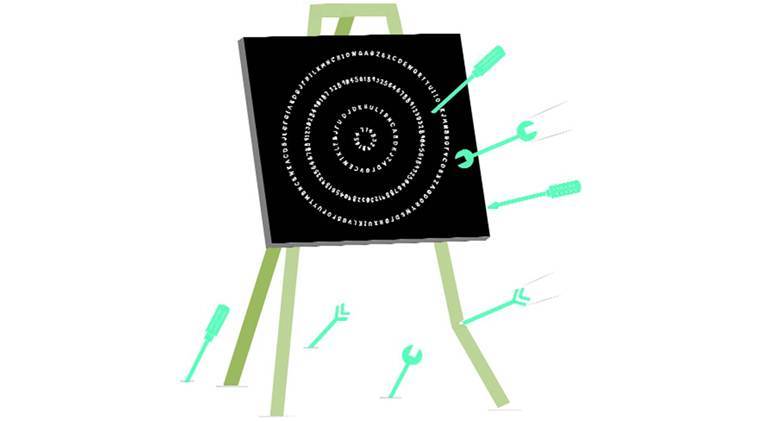- India
- International
To remain globally competitive in a post-Covid world, India needs to focus on skill, scale and speed
India has the potential to emerge as the global hub for providing skilled manpower to other nations. We can prove to the world that the 21st century belongs to India through self-belief, dedication and discipline.
 As pandemic-induced lockdowns battered economies, disrupted global supply chains and affected livelihoods across different sectors, Prime Minister Narendra Modi gave a clarion call to make India self-reliant. (File)
As pandemic-induced lockdowns battered economies, disrupted global supply chains and affected livelihoods across different sectors, Prime Minister Narendra Modi gave a clarion call to make India self-reliant. (File)
It is common knowledge that life in the post-COVID era will not be the same. The effects of the pandemic are expected to have a lasting impact on every sphere of activity, even as various nations are trying to revive their economies and protect livelihoods.
As pandemic-induced lockdowns battered economies, disrupted global supply chains and affected livelihoods across different sectors, Prime Minister Narendra Modi gave a clarion call to make India self-reliant. He announced the Atmanirbhar Bharat Abhiyan to propel the country on the path of self-sustenance.
With the twin objective of reviving different spheres of the economy in the short term and insulating India from any future global economic downturn, in the long run, the Abhiyan seeks to build capacities across sectors and promote local products. At the same time, Atmanirbhar Bharat is not meant to promote protectionism or isolationism by erecting trade barriers. Rather, it seeks to make the Indian economy robust in the long run by scaling up manufacturing, accelerating infrastructure development, attracting investments and promoting a consumption-led growth.
The youth are the future of any country. But India can take the lead over many other nations because about 65 per cent of its population is below 35 years and 50 per cent is below 25 years. With a huge, educated young population, India is uniquely poised to realise its demographic potential. The fact that Indians are heading several MNCs shows that there is no dearth of knowledge and talent in the country. However, the need of the hour is to upgrade the skills or upskill the youth to meet the employment needs of technology-driven 21st century and accelerate the pace of self-reliance.
Opinion | Unlocking economy in phases poses a major conundrum for government

One of the most profound impacts of the pandemic has been on workplaces. Offices straddling multiple domains, particularly IT, are functioning with minimum staff strength. Most organisations are allowing their employees to work from home. The uncertainty created by the pandemic is being seen by many as an opportunity to upgrade their knowledge and acquire new skills.
The UN has quite appropriately chosen the theme “Skills for a Resilient Youth” for World Youth Skills Day today, which is being observed by holding virtual events.
According to the UN, the pandemic and lockdown measures have led to the worldwide closure of technical and vocational education and training (TVET) institutions, threatening the continuity of skill development. It is estimated that nearly 70 per cent of the world’s learners are affected by school closures across education levels. TVET institutions play an important role in equipping the youth with the skills for employment, including those needed for self-employment. They also help in upgrading or re-skilling low-skilled youth.
Much before the current pandemic, the fourth industrial revolution triggered a paradigm change with digital technology driving the job market. Remote working with increasing adoption of digital technology might continue to be the modus operandi for the foreseeable future.
Opinion | The way in which it was executed, India’s lockdown itself became source of virus’s spread
A host of skill sets — listening and communication, cross-cultural sensitivity, adaptability to changing work environments, emotional intelligence and social etiquette along with a good academic record — are important for those seeking employment in the emerging job scenario. Artificial intelligence, machine learning, data science, cloud computing and Internet of Things, among others, will be relied upon by companies. With people increasingly resorting to online buying, companies will seek to adopt new online marketing strategies.
The India Skills Report-2020 says that currently, millennials constitute nearly half (47 per cent) of the country’s working population. This is likely to remain the largest chunk of the Indian workforce for the next 10 years. Another important issue that needs to be addressed by all stakeholders is ensuring equitable employment through higher participation of women in the workforce.
In the backdrop of the call for Atmanirbhar Bharat, there have been some reassuring developments with an accent on “local to glocal”. The production of several lakh PPE kits, collaboration of automobile industries to produce ventilators, manufacture of more than 70 Made in India products by the DRDO, development of the low-cost ventilator Prana-Vayu by IIT Roorkee, the products developed by start-ups in Karnataka to tackle COVID-19 are just a few examples of the capability of Indian scientists, IT professionals and technocrats.
Based on the locally available resources, talent, and skills of the human capital, we must aim to gradually reduce imports in every sector from crude oil to heavy machinery.
Opinion | The way in which it was executed, India’s lockdown itself became source of virus’s spread
While remaining vocal about local, there has to be a paradigm shift in all areas for Indian products to be globally competitive. We must endeavour to stay ahead in the innovation-led knowledge economy. PSUs and the private sector must not only play a complementary role in building a self-reliant India but collaborate wherever feasible. Undoubtedly, the private sector must massively step up investments R&D. PSUs too need to modernise in terms of technology. In areas like hi-tech medical devices and equipment, India has to drastically increase manufacturing to cut down imports and save precious foreign exchange.
This is the time for 130 crore Indians to showcase the country’s collective resolve to overcome the setbacks caused by the pandemic. We need to forge ahead by harnessing India’s human resources and technological capabilities. To remain globally competitive with a well-assured future, we need to focus on “skills, scale and speed”. India has the potential to emerge as the global hub for providing skilled manpower to other nations. We can prove to the world that the 21st century belongs to India through self-belief, dedication and discipline.
This article first appeared in the print edition on July 15, 2020 under the title ‘Skill India for Atmanirbhar Bharat ‘. The writer is Vice-President of India
EXPRESS OPINION
More Explained
Apr 26: Latest News
- 01
- 02
- 03
- 04
- 05











































